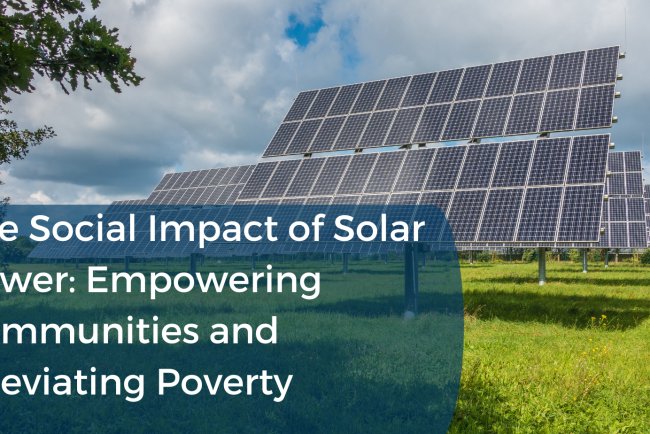Economics of Solar Power: Cost-Benefit Analysis for Homeowners and Businesses
The global push towards sustainable energy has put solar power at the forefront of the energy transition.

The global push towards sustainable energy has put solar power at the forefront of the energy transition. With advancements in technology and favorable government policies, solar power has become increasingly accessible and economically viable for both homeowners and businesses. This article explores the economics of solar power, providing a cost-benefit analysis for those considering this renewable energy source.
Understanding Solar Power Economics
Solar power's economics are influenced by several factors, including initial installation costs, government incentives, energy savings, and maintenance expenses. The financial appeal of solar energy lies in its ability to provide long-term savings and environmental benefits.
Initial Installation Costs
The upfront cost of installing a solar power system can be significant. This includes the price of solar panels, inverters, mounting equipment, and installation labor. However, the costs have been decreasing steadily. In India, for instance, the cost of solar panels has dropped by nearly 80% over the past decade, making solar power more affordable than ever.
Government Incentives and Subsidies
Governments worldwide, including India, offer various incentives to encourage the adoption of solar power. These incentives can significantly reduce the net cost of installation. The Indian government provides subsidies under the National Solar Mission, making solar energy systems more accessible to the masses. Additionally, tax benefits and accelerated depreciation are available for businesses investing in solar power.
Energy Savings and Payback Period
One of the main economic benefits of solar power is the reduction in electricity bills. Solar energy can offset a substantial portion of a homeowner's or business's electricity consumption. For businesses, especially those with high energy demands, the savings can be substantial. Typically, the payback period for solar installations ranges from 5 to 10 years, after which the energy generated is virtually free.
Maintenance and Lifespan
Solar power systems require minimal maintenance. Regular cleaning and occasional inspections are usually sufficient to keep the system running efficiently. Solar panels have a lifespan of 25-30 years, ensuring a long-term return on investment. Inverters may need replacement after 10-15 years, but this cost is relatively minor compared to the overall savings.
Economic Analysis for Homeowners
For homeowners, the decision to switch to solar power can be financially prudent. A typical residential solar power system can generate enough electricity to cover most, if not all, of a household's energy needs. With the falling costs of solar technology and the availability of subsidies, the initial investment can be recouped within a few years through savings on electricity bills. Furthermore, homes with solar installations often have higher property values, providing an additional economic benefit.
Economic Analysis for Businesses
For businesses, especially those with large energy requirements, investing in solar power can lead to significant cost savings. Utility-scale solar projects can provide a stable and predictable source of energy, shielding businesses from the volatility of traditional energy markets. Companies like Tata Power Solar and Adani Solar, among the top renewable energy companies in India, offer comprehensive solutions for commercial solar installations, ensuring efficient and cost-effective energy production.
India's commitment to renewable energy is evident in its ambitious targets and supportive policies. The country aims to achieve 100 GW of solar power capacity by 2022, with substantial investments in utility-scale solar projects. This energy transition is crucial for reducing carbon emissions and promoting sustainable development. The involvement of top renewable energy companies in India has been pivotal in driving this transition, with significant contributions to both grid-connected and off-grid solar installations.
Conclusion
The economics of solar power are increasingly favorable for both homeowners and businesses. With decreasing installation costs, substantial government incentives, and significant energy savings, solar power presents a viable and attractive option for reducing energy costs and contributing to environmental sustainability. As India continues its energy transition, supported by top renewable energy companies, the adoption of solar power is set to rise, offering long-term economic and ecological benefits.
Switching to solar power is not just an environmentally conscious decision but also a financially sound investment that promises enduring returns and sustainability for the future.
What's Your Reaction?

































